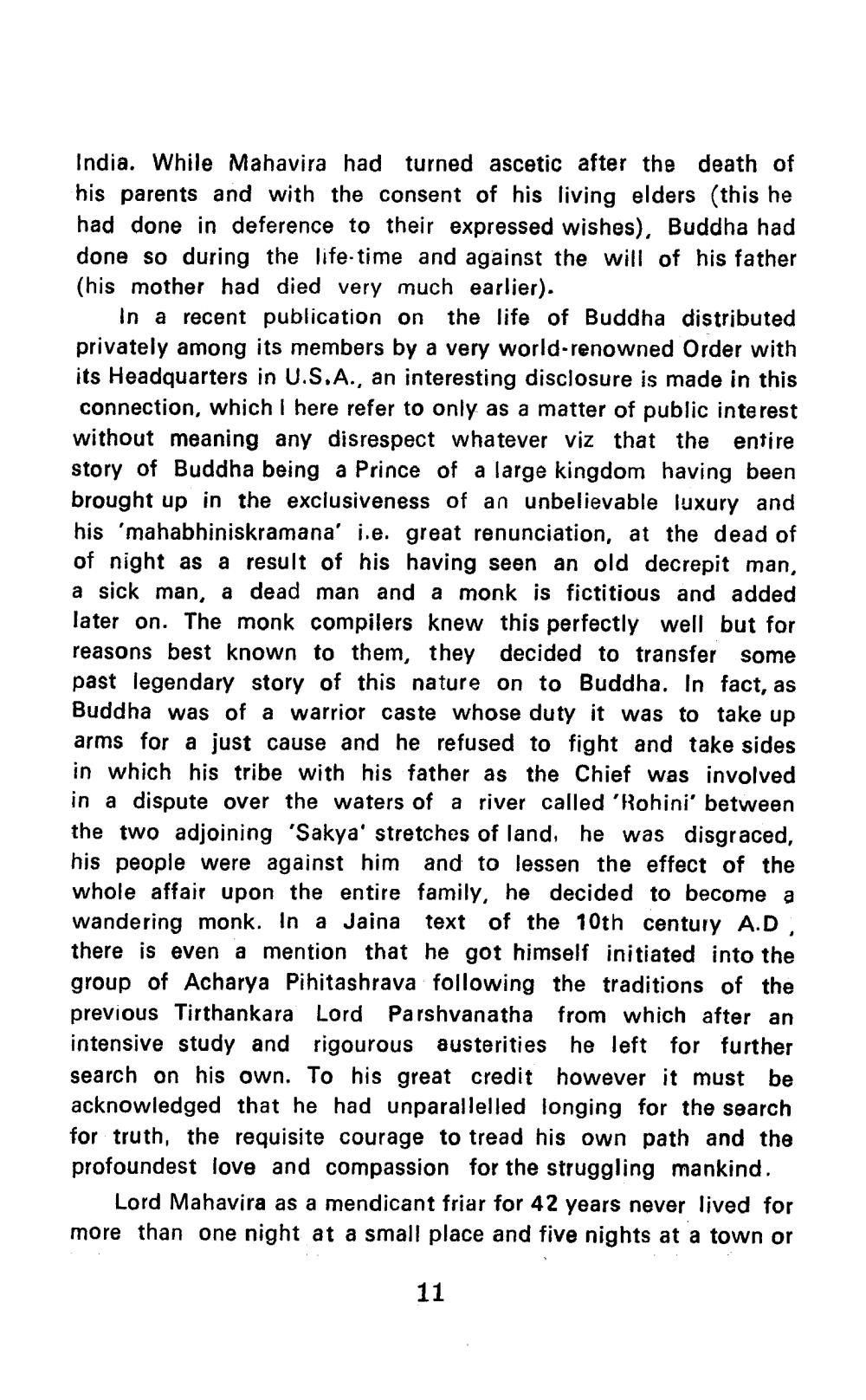________________
India. While Mahavira had turned ascetic after the death of his parents and with the consent of his living elders (this he had done in deference to their expressed wishes), Buddha had done so during the life-time and against the will of his father (his mother had died very much earlier).
In a recent publication on the life of Buddha distributed privately among its members by a very world-renowned Order with its Headquarters in U.S.A., an interesting disclosure is made in this connection, which I here refer to only as a matter of public interest without meaning any disrespect whatever viz that the entire story of Buddha being a Prince of a large kingdom having been brought up in the exclusiveness of an unbelievable luxury and his mahabhiniskramana' i.e. great renunciation, at the dead of of night as a result of his having seen an old decrepit man, a sick man, a dead man and a monk is fictitious and added later on. The monk compilers knew this perfectly well but for reasons best known to them, they decided to transfer some past legendary story of this nature on to Buddha. In fact, as Buddha was of a warrior caste whose duty it was to take up arms for a just cause and he refused to fight and take sides in which his tribe with his father as the Chief was involved in a dispute over the waters of a river called 'Rohini' between the two adjoining 'Sakya' stretches of land, he was disgraced, his people were against him and to lessen the effect of the whole affair upon the entire family, he decided to become a wandering monk. In a Jaina text of the 10th century A.D, there is even a mention that he got himself initiated into the group of Acharya Pihitashrava following the traditions of the previous Tirthankara Lord Parshvanatha from which after an intensive study and rigourous austerities he left for further search on his own. To his great credit however it must be acknowledged that he had unparallelled longing for the search for truth, the requisite courage to tread his own path and the profoundest love and compassion for the struggling mankind.
Lord Mahavira as a mendicant friar for 42 years never lived for more than one night at a small place and five nights at a town or
11




